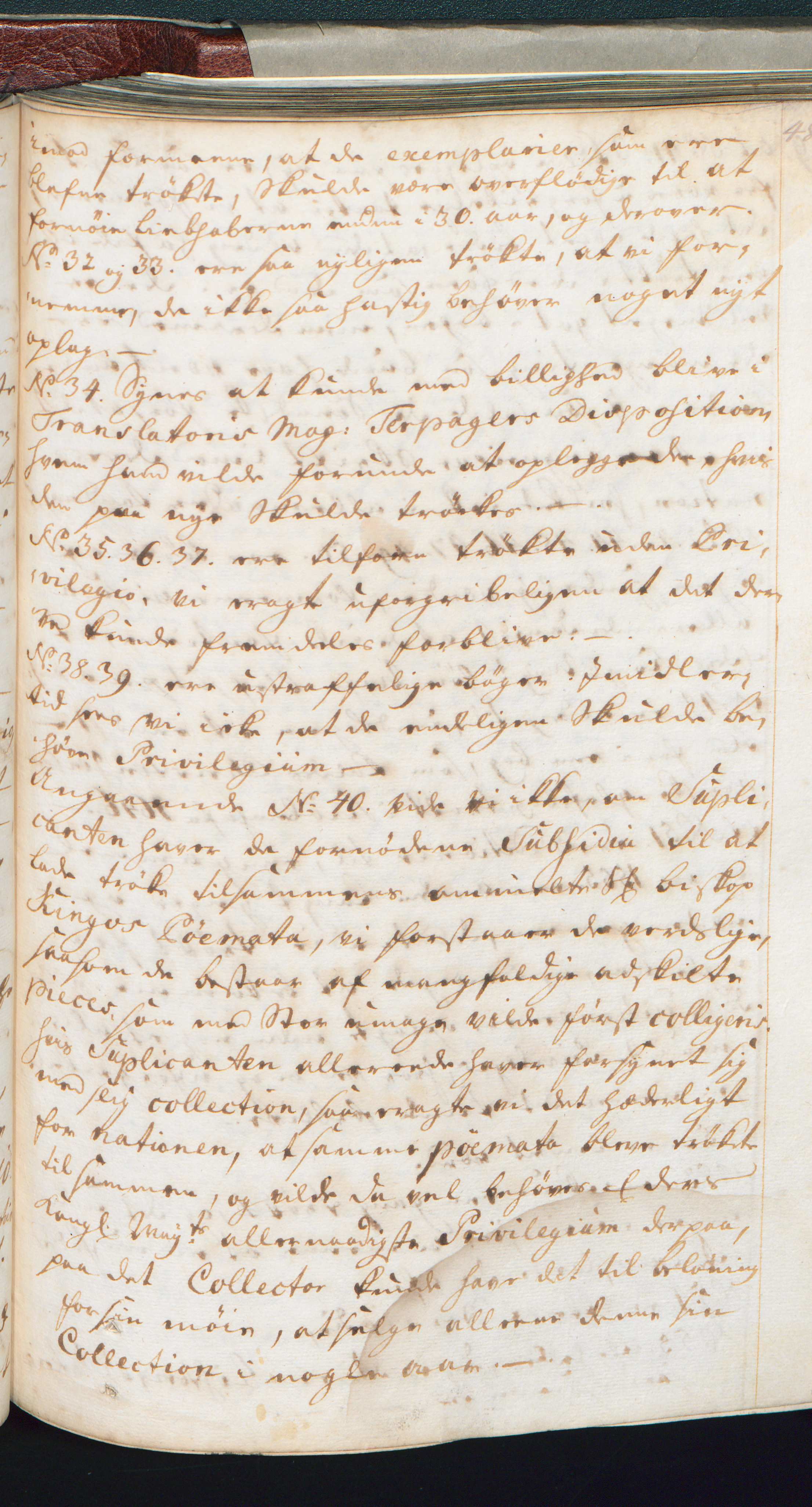PRIMARY SOURCES
ON COPYRIGHT
(1450-1900)
Source: Danish National Archives, Københavns Universitet, Konsistorium: Kopibog (1538-1882) 1213-09: 1712 9 - 1727 9 mm.
Citation:
Printer Joachim Wielandt's Privilege for Popular Chapbooks, Denmark–Norway, Copenhagen (1721), Primary Sources on Copyright (1450-1900), eds L. Bently & M. Kretschmer, www.copyrighthistory.org
Back | Record | Images | Commentaries: [1]
Translation only | Transcription only | Show all | Bundled images as pdf
we think that the copies printed should be superfluous to satisfy the enthusiasts for 30 years or more.
Nos. 32, 33 have been printed so recently that we do not think they need to be reprinted so soon.
No. 34 seems to be able to remain cheaply in translation at Mag. Terpagers, with whom he would prefer to publish it if it were to be reprinted.
Nos. 35, 36, 37 were formerly printed without privilege. We have no doubt that they will continue to be printed.
Nos. 38, 39 are innocent books. However, we have no reason to believe that they will ever need a privilege.
As for No. 40, we do not know whether the supplicant has the necessary means to obtain the poems of the aforementioned Blessed Bishop Kingo, which we understand to be infinitely large, since they consist of many separate parts, which would be very difficult to organise. If the supplicant has already provided himself with such a collection, we consider it honourable for the nation that the same poems should be printed together. Your Majesty’s privilege in this is that the collection should have it as a reward for his work, to sell his collection alone, for some years.
i mod formener, at de exemplairer som ere bleven trøcket, skulde være overflødige til at fornøie liebhaberne i 30 aar eller der over.
Numeri 32, 33 ere saa nyligen blefen trøcket at vi formener den icke saa hastig behøver noget nyt oplag.
Num. 34 synes at kunde med billighed blive i translatoris Mag. Terpagers, disposition, hvem hand vilde forunde at oplægge den, hvis den paa ny skulde trøckes.
Numeri 35, 36, 37 ere tilforne trøcket uden privilegio. Vi eragte uforgripeligen, at det derved kunde fremdeles forblive.
Numeri 38, 39 ere ustraffelige bøger. Imidlertid har vi icke at de endeligen skulde behøve privilegium.
Angaaende num. 40 vide vi icke om Supplicanten have de fornøden Subsidia til at lade trøcke til samme ommældte Sal[ige] Biskop Kingos poemata, vi forstaa de uendelig, saasom de bestaae af mangfoldige atskilte pieces, som med stor umage vilde først colligeres. Hvis Supplicanten allerede haver forrsynes sig med slig collection, saa eragte vi det sæderligt for nationen, at samme poemata blef tryckte til sammen. Eders Majestets privilegium der paa, paa det collecton kunde have det til beløning, som sin møie, at sælge allene den sin collection, i nogle aar.












